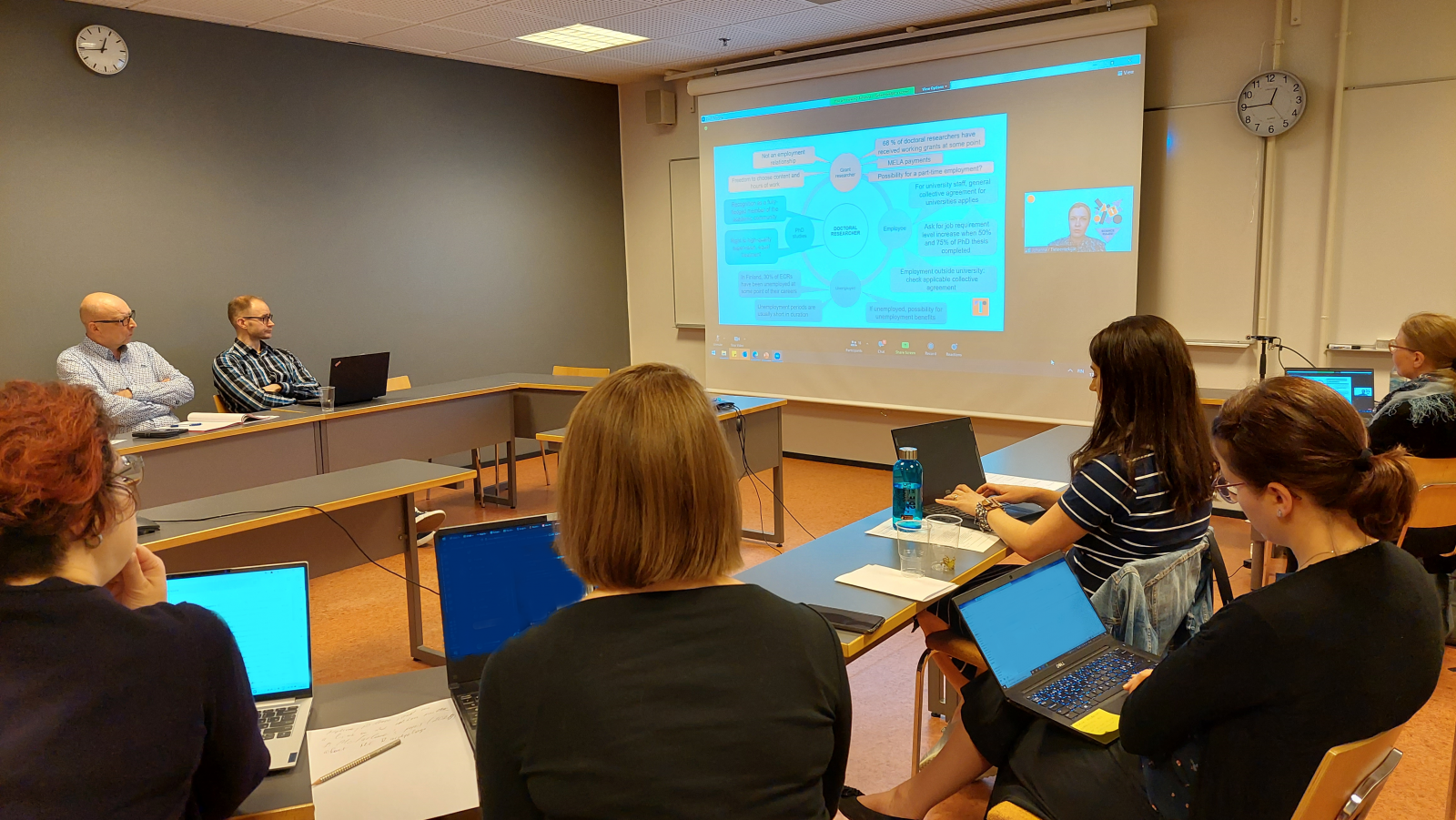Around 25 participants joined the seminar that was held onsite and online and open to all who consider themselves as Finland-based early career-higher education researchers. The event was arranged jointly by the Network of Finland-based early-career higher education researchers, Higher Education in Transition – HET (Tampere University), Higher Education Group – HEG (Tampere University) and the Consortium of Higher Education Researchers in Finland – CHERIF. Organised for the first time, this one-day seminar included two presentations and two parallel sessions that focused on different aspects of being an early-career researcher in the field of higher education.
The event was introduced and chaired by Vesna Holubek, HET group’s Doctoral Researcher at the Faculty of Education and Culture, and Henna Juusola, a Postdoctoral Researcher at the Faculty of Management and Business, Tampere University. The introductory part included short speeches by Vesa Korhonen (Co-leader of HET), Jussi Kivistö (Professor at HEG) and Taru Siekkinen (Chairperson of CHERIF) who gave an overview of research and activities conducted by their respective groups.
The first presentation was given by Melina Aarnikoivu, Postdoctoral Researcher at FIER, University of Jyväskylä, Project Leader at University of Borås and Coordinator of ECHER. Aarnikoivu spoke about interdisciplinarity of the higher education (research) field and differing positions of early-career higher education researchers (usually understood as a group that includes master students, doctoral and postdoctoral researchers). “No researcher is ever ‘ready’”, Aarnikoivu reflected when talking about doctoral education. She endorsed an increasing use of the term ‘doctoral researcher’ (instead of ‘doctoral student’) in Finnish universities as it better recognises the scientific research work of doctoral researchers.
‘Position of early-career researchers in Finnish higher education’ was the topic of the keynote speech given by Johanna Moisio, Executive Director of FUURT. Moisio presented the findings of the early-career researchers survey conducted in 2021 by FUURT. The survey showed, among others, that a large number of early-career researchers in Finland work with the support of a grant (68 % of doctoral researchers have received working grants at some point). Moisio noted that grant-work is not an employment relationship and emphasised that employers should do their part in creating more stable career paths and supporting fair working life (also) for early-career researchers.
The afternoon programme included two parallel sessions: (1) “How to start and conduct PhD research?” and (2) “I have done a PhD; what now?”. The open discussions during the sessions explored informal rules and invisible hierarchies that may be present in academic communities, but also important aspects of doctoral research and supervision issues (session 1) as well as plural paths and (sometimes unexpected) opportunities in post-doc careers or similar kind of careers in knowledge intensive workplaces (session 2).
The event was concluded with a joint reflection on the day’s topics and sharing ideas on the future of the Network of Finland-based early-career higher education researchers. The participants and organisers considered it important to continue such fruitful discussions and networking in the future. It was agreed to maintain the regular monthly coffee meetings online (organised since spring 2021) and to arrange again a similar kind of seminar or event gathering early-career higher education researchers.
The seminar description and programme are available on the event’s webpage.
Text and photo: Henna Juusola & Vesna Holubek

